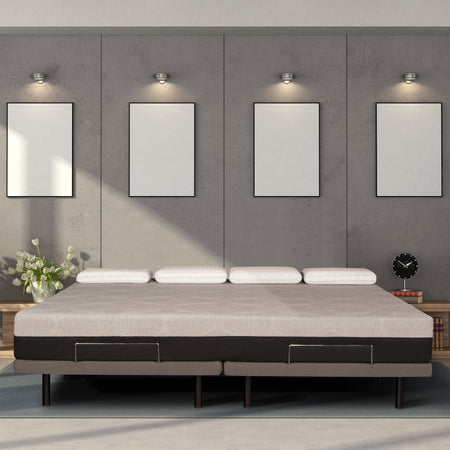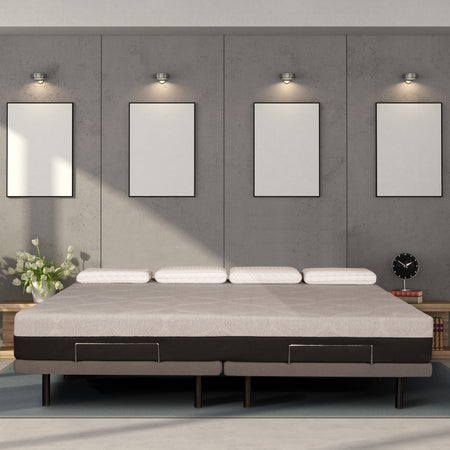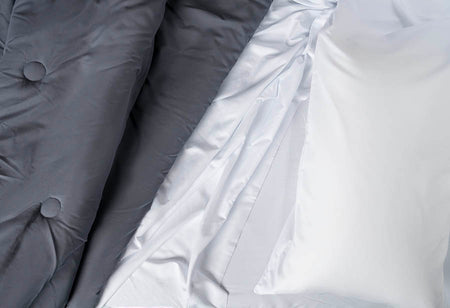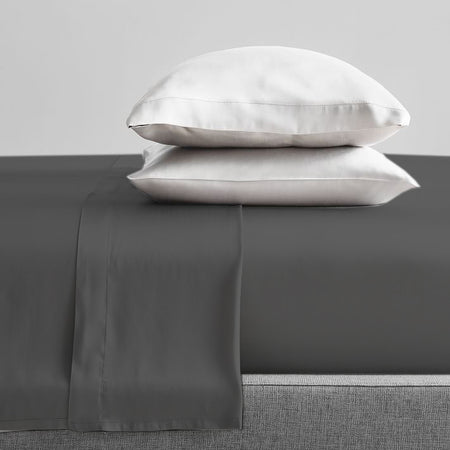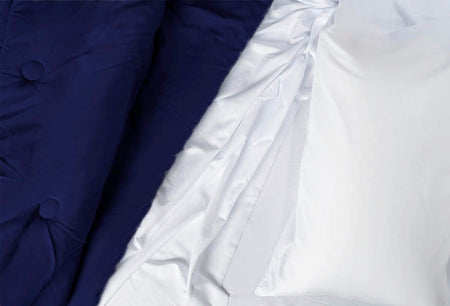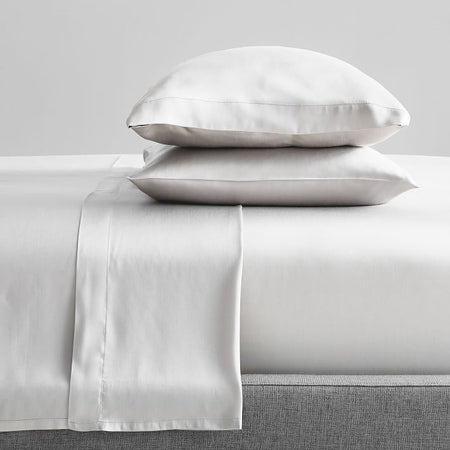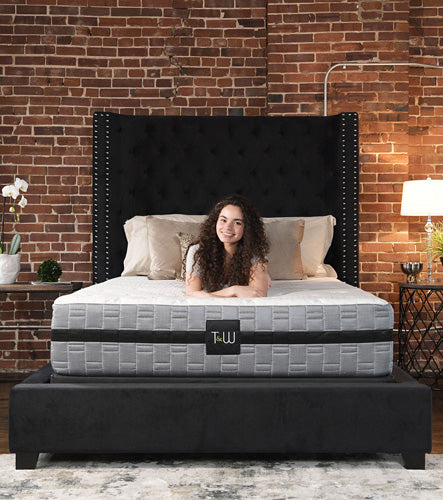It’s so easy to stay up late these days. Between binge-watching the latest TV shows, scrolling endlessly through social media, or just finishing up work, it feels like we’re always on the go. But have you ever stopped for a second to think about how these habits affect your rest?
A growing body of evidence suggests that modern life is taking a toll on our functioning, thanks to its damaging effects on sleep quantity, quality, and timing. This guide will explore how this happens and what we can do to reclaim a restful night. But first, let’s look at why sleep is important.
Why We Need Adequate Sleep

Sleep is as important for good health as exercise and diet. We can only function well if we get enough sleep. Numerous studies have associated short sleep – defined as sleeping less than 7 hours per night – with a greater risk of:
- A weakened immune system
- Increased risk of chronic conditions like heart disease, diabetes, high blood pressure and stroke
- Weight gain
- Cognitive impairment
- Mental health issues
In contrast, they’ve linked adequate sleep to strong immune function, healthy weight, cognitive clarity, emotional well-being, and reduced risk of chronic conditions. Adequate sleep allows your body time to repair tissues, consolidate memories, and balance hormones. But with all the technology and our fast-paced lifestyles, getting enough quality sleep has become more challenging than ever.
How Today’s Habits Mess with Your Sleep
Sleep issues aren’t a new problem; people have struggled with sleep for centuries. But today’s habits are making it even harder to get the restful night’s sleep we need. Here’s how:
Using Your Devices Close to Bedtime
We all love our smartphones, tablets, and laptops, but using them close to bedtime can really mess with your sleep. These screens give off blue light, which tricks your brain into thinking it’s still daytime and stops the production of melatonin—the hormone that helps you sleep. So, when you’re scrolling through social media or watching videos in bed, you’re actually keeping yourself awake longer.
Plus, the content is designed to keep you hooked. One video turns into ten, and before you know it, it’s way past your bedtime. To protect your circadian rhythms, try cutting back on screen time at least an hour before you hit the pillow. You can also use filters to reduce the impact of blue light exposure.

Taking Caffeine or Alcohol Before Bedtime
Your dietary choices can affect your sleep, too. Caffeine – which is found in a variety of foods and beverages – is a good example. Decaf brews, non-cola sodas, ice cream, breakfast cereal, chocolate, etc., can stimulate your nervous system and keep you awake.
Alcohol affects sleep, too, but in a different way. It’s a depressant and, therefore, makes you fall asleep more quickly. But it can also wake you up during important and restorative stages of sleep. Alcohol has been shown to worsen sleep apnea symptoms and, when regularly used, increase the chances of sleep talking, sleepwalking and memory issues.
Eating Right Before You Sleep
Experts recommend avoiding spicy and acidic foods at least three hours before bedtime because they give you indigestion and heartburn. They also discourage people from eating a high-protein diet close to bedtime because they take a long time to break up in your digestive system. This is an issue because digestion slows by up to 50% when you sleep.
You’ll probably experience the same challenge when you have a heavy meal before you sleep. Heavy eating before bed causes discomfort, sleep issues, weight gain and other health issues over time. If you’re hungry later, go for a light snack like a handful of nuts or eat some fruits and vegetables. These food groups are easier for your body to digest and can help you sleep more soundly.
Sleeping Less When You’re Busy
When life gets busy, sleep is often the first thing we cut back on. Whether it’s working late or trying to squeeze in some extra “me time,” it’s easy to sacrifice sleep. But this approach is often counterproductive.
When you don’t get enough sleep, you end up feeling more stressed, irritable, and less focused, which hampers your efficiency. It’s in your best interest to prioritize your sleep just as you would any other important task. This will help your body and mind recover and make you more productive during the day.

Staying up Late or Sleeping too Much Over the Weekend
Weekends seem like a good time to sit back, relax and enjoy. So, most of us stay up late catching up with our latest TV shows or hanging out with friends. But this only throws off our body’s internal clock and creates a social jet lag that makes it hard to go back on track when the workweek starts.
It’s almost the same feeling when you travel to places in a different time zone or do late shift work. You might end up feeling tired and groggy throughout the week. Try to maintain consistent sleep schedules, even on weekends, to support your circadian rhythms and improve your overall sleep health.
Exercising Right Before You Go to Bed
This might come as a surprise because we all know that exercise is great for your health. However, working out right before bed can have the opposite effect on your sleep. Physical activity increases your heart rate and adrenaline levels, making it harder for you to relax.
Aim to finish exercising at least a few hours before bedtime to give your body time to wind down. Gentle exercises like stretching or yoga in the evening can be beneficial without disrupting your sleep.
Taking Long Naps During the Day
If you’re taking long naps—especially in the late afternoon—you’re basically stealing sleep from your night. It messes with your body’s natural rhythm, making it harder to fall asleep when you actually want to. If you really need a nap, try to keep it short, around 20–30 minutes, and aim for earlier in the day. This way, you can recharge without throwing off your nighttime sleep.
Using Your Bedroom as a Multipurpose Room
When you bring work, TV, or food into your bed, your brain starts to associate your sleep space with everything except rest. This makes it much harder to wind down when it’s actually time to sleep. Keep your bedroom cool, dark, and quiet, and reserve it just for sleep and relaxation. A cozy setup and a comfy mattress can make all the difference.
Mental Health Issues like Stress
Stress and anxiety are big sleep disruptors. When your mind is racing with worries or you’re feeling overwhelmed, it’s hard to relax enough to sleep. Stress triggers your body’s “fight or flight” response, which is the opposite of what you need at bedtime. Relaxing activities like reading, deep breathing, or meditation before bed can help you manage stress and make it easier to fall asleep.
Not Paying Attention to Your Mattress
Sometimes, it’s not just your habits that mess with your sleep—your bed and mattress play a big role, too. An old, uncomfortable mattress can leave you tossing and turning, waking up with aches, or just not feeling rested. If your bed isn’t giving you the support you need, it’s much harder to get the hours of sleep that let your body and mind recharge.
A good mattress supports your body in all the right ways; it reduces pressure points, aligns your spine, minimizes motion transfer and makes it easier to relax and drift off to sleep.
So, if you’ve been struggling with your sleep, it might be time to take a closer look at your sleep health and lifestyle. You don’t have to make huge changes all at once—sometimes, it’s the small adjustments that can make the biggest difference.


